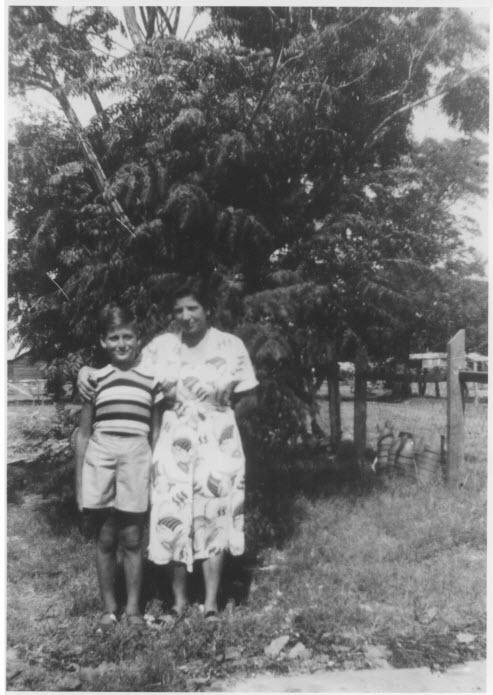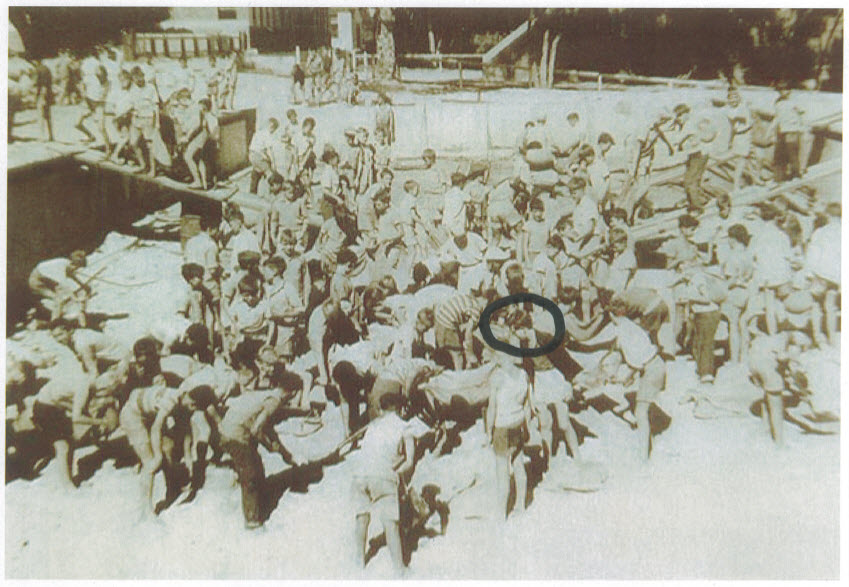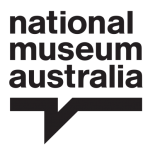by Godfrey Gilmour (guest author) on 13 April, 2011
“I may not have been an orphan in the real sense of the word, and my experience at Clontarf as a state ward, however, was full of orphaning experiences”. Godfrey Gilmour, a retired Anglican priest, noticed himself as a child in a photograph, published on this website, taken by Mick O’Donoghue at Clontarf Boys Town in the 1950s. Here, he shares his experiences as a child migrant from a loving family in Malta to the harsh conditions at Clontarf:
I was born in Malta in 1944 in wartime. My mother was Mary Tonna and my father Geoffrey was an English soldier recently transferred to Malta from the North Africa campaign. My parents met sometime in late 1942 or early 1944. It was a wartime love affair and did not come to light til my mother became pregnant and her parents became involved. It was then discovered that Geoffrey was married and that despite my grandfather’s attempt to sort something out, it came to no avail. The army then intervened and sent Geoffrey away to the Italian campaign. My mother never heard from him again and her registered letters to him containing photographs of me went unanswered.
After the war, I lived with my mother and grandparents. It was a comfortable and culturally enriching life. I was close to my grandparents and extended family and I still have very happy memories of that period of time.
At the age of seven I was placed in St Patrick’s School in Sliema which was a boarding school where I experienced abuse for the first time, my family was unaware of this, and I felt unable to tell them about the events at St Patrick’s for I was fearful of the repercussions that might ensue. I was eager to leave the place and always longed to see my father. Some time in 1952 Father Cyril Stinson came to the school in Malta from Western Australia to recruit boys to migrate to Australia. I always remember that he had a florid face and smelt of whiskey. Along with other boys I was told how wonderful Australia was, and the wonderful school we would be going to. My mother along with other parents was also told similar things and also thought this would be a good thing especially as she was also advised that she could also follow me to Australia. In my child’s mind, I thought that somehow, I would be closer to England and that I might see my father. I had no idea Australia was on the other side of the world.
In July 12th 1953 I migrated to Australia. When I arrived at Clontarf, I immediately felt that this was a dark place. And it proved to be so almost from day one. It felt as though I had landed like on the dark side of the moon. I didn’t fit in at Clontarf; I had come from a cultured family in Malta. My mother had a wonderful singing voice. I always had plenty of reading matter, at night, in Malta; she would sing me to sleep with operatic arias that she had learnt. But at Clontarf, I experienced a great deal of deprivation especially in the early years. I was to experience emotional, physical and sexual abuse almost the very first days. There was a predatory culture at work at Clontarf and at Castledare; young boys were preyed upon by particular staff and also older boys. My first nights in one of those large cold dormitories were miserable and I recall crying myself to sleep wondering when my mother was going to arrive and take me away.
From the first days I witnessed and then personally experienced the harsh discipline and the use of the infamous straps made of several layers of leather and reinforced with metal to make them weightier and more painful. The staff carried these up the sleeves of their cassocks and used them with terrible efficiency. In the absence of their straps staff resorted to sticks, canes and fists even on very young boys and those who were maimed through accidents. The attitude of some staff was sadistic.
There was also this process of depersonalisation at work at Clontarf and a loss of identity. I soon became a number. My Christian name was never used, only my number and surname. My personal belongings were soon taken away from me, my books were burnt, and my mail home was censored. We were forbidden to speak Maltese. Being bi-lingual I was at times told to translate letters from Malta to Maltese boys for the principal in case information about Clontarf was getting back to Malta. There was a lack of respect for the individual, the well-being of the institution mattered more.
The food was so awful after the Mediterranean diet I was used to; hunger was a constant reality, and boys resorted to raiding the pig bins for food. The enforced nudity, the lack of privacy [even the toilets lacked doors], the constant hard work that we had to engage in, often in dangerous conditions, made inroads into our health and well-being also affected of academic performance. Many boys failed academically and were put to work at an early age and were functionally illiterate on leaving Clontarf.
My mother came out to Australia in October 1954. Catholic welfare found her work at a Catholic presbytery in Fremantle. In early 1955 my mother found employment at Castledare, the junior orphanage that fed into Clontarf. She became uncomfortable with the violence that she saw. On raising this with one of the brothers, he said, “I didn’t want to be here. My parents forced me to become a Christian Brother”.
My mother was asked to leave Castledare and moved to Perth and worked there. In 1957 my mother married Jack Gilmour. He immediately wanted to adopt me legally and immediately ran into obfuscation both by the authorities and also the staff at Clontarf. People did not readily question authority in those days. Unbeknown to them, I was legally a state ward. My step father then took steps to change my name by deed poll. This was done much to the chagrin of Brother Doyle, the principal, who in an interview with my parents at which I was also present raised objections. My parents insisted that I should now be known as Godfrey Gilmour. Already out of favour with Brother Doyle this latest issue made life difficult, ever more difficult for me.My final year at Clontarf was spent in Br Doyle’s class. It was a devastating year for me. I was brutalised and humiliated by this man all year. I was at times hit over the head by this man and had my spectacles broken after being hit across the face. He took a dislike to my accent and constantly drew attention to what he described as my ‘plummy accent’ and humiliated me in front of my peers. I became an anxious boy, I developed a speech impediment, had sleep problems and even experienced bouts of enuresis, [bed wetting] something I had never experienced in my life. At the end of the school year I was simply told to leave and not come back. I virtually left in the clothes I was standing in. I was still a ward of the state and yet my parents received no support whatever for my transition to life outside the orphanage. After several years my mother received a letter from the Child Welfare Department in Perth, advising my mother that she could now adopt me.
Such was my experience in care in Western Australia, I may not have been an orphan in the real sense of the word, and my experience at Clontarf as a state ward however was full of orphaning experiences. Putting the past behind me I forged a career in education, family welfare and ministry.
PS: I was to meet my father in the UK, shortly before he died we were reconciled. I also met 9 siblings and large family. My mother did not live to see that day. She died in Malta.




Godfrey, what a story, you write so beautifully I couldn’t stop reading. . I wish you would write a whole memoir We need to prevent children being used like this. How wonderful that you had the mother that you did as contrast. Best wishes, Rachaell.
Dear Rachell,
I am so pleased that you responded to my entry. I have been struggling to write my memoir. I am in the process of writing my memoir.Writing a memoir that touches on traumatic events brings back painful memories and I made constantly aware of this as it touches a raw nerve. I added this short excerpt from my writing as I wanted the public at large to know the cruel events that took place and the plight of child migrants.
You are right in saying that my mother was wonderful, indeed she was for me my saving grace, if it had not been for her I may not have survived those awful years years in institutions. Thank you for contacting me. regards Godfrey
Dear Godfrey
, as a victem of “so-called care” myself I know what you mean abour the difficulty of documenting these painful times. Not surprisingly though, those memories rise up on me whenever I am in a tight spot in my life. When my husband was dying of lung cancer–that’s all I could work on. I suppose we are like veterans who talk about the wars as if it were now, because in a certain way we carry it with us now. The past is always with us. So the way I figure it, the more light thrown on this darkness the better it will be. By sharing our stories we validify the experiences of those who have not yet found their voice.
So keep writing!
You can see an aspect of my story on the link for In the Shadow of Eden, on this site.
Best wishes,
Rachael
Dear Rachel,
Thank you for sharing your thoughts and an aspect of your story, thank you
too for your comments, they are most welcome. I take heart from your
counsel. I too, experience that welling up of feeling whenever I am in a
tight spot and with it comes anxiety and feeling of panic at times. I know
it has its genesis in the events surrounding my childhood. It was one of
the reasons that I retired from parish work early and worked privately for
a number of years as a therapist.
I have now been attempting to document my story for a number of years with
difficulty. At times my writing turned out more like an academic
exercise,with lots of detail but not much soul, perhaps it was my way of
coping with the unpalatable events from the past. At first I was merely
collating past events and making lists, later came other writing. The
problem with writing ones’ biography is that, it is too revelatory, and I
expect that those of us who went through abusive and traumatic times have
spent much time keeping things under wrap out of fear. I agree with you
writing lets the light in and dispels the darkness. I intend to read your
writing “In the Shadow of Eden” and will keep be in touch. With Best Wishes,
Regards, Godfrey Gilmour
Hi Godfrey,
I have just read your well written article, I wish I could express myself as well. I am currently writing a book ‘The Salvation Army’s Shame’, about my 4 years at The Gill Memorial Home in Goulburn NSW. I am fortunate to have a journalist friend who will bash my stories into shape! What happened to you is very similar to the experiences of children who were brought up in Church run instituations. I hope you had a better life whe you left the home and congradulations for telling your story, Regards Clem Apted Te Aroha NZ. PS I am coming to Australia in July to attend a reunion in Goulburn organised by James Luthy the President of Clan, Jim has done a fantastic job representing former inmates of homes.
Hello Clem,
Lovely to hear from you from over in New Zealand.
Writing about the past presents a variety of problems and not just academic
ones at that. To emotionally visit past traumatic events that occurred in
childhood is always fraught with difficulties. It is almost akin to
travelling through an alien landscape, it is an emotionally draining and at
times painful experience. It can however be a cleansing experience and also
a healing one at that. I hope your journalist friend can assist you to
accurately record your story and to assist you with describing the emotional
aspects of your early life in care.
Take care Clem. And again thanks for sharing your story with me. Godfrey
Gilmour
I am a former child migrant, sent from England – I was 8 years old – to Australia in 1953 and spent 8 years in an orphanage – Clontarf Boys Town – in Western Australia.
I suffered for many years from anxiety annihilation as a result of abuse, deprivation etc. Through the Grace of God & years of counselling I was delivered from my psychological hell. I was saved, I am saved and I am being saved. Yes, but only GOD knows who they are.
i Have just read this page, and it filled me with dismay and sadness, but i remembered what our Lord said, harm the least of my brethren, and it would be better if a Millstone was placed around your’e neck and you be cast into the Sea, how true this is, according to my Christian beliefs, rest assured, these Evil Anti Christs, will certainly pay for their despicable crimes against Humanity, the Lord has promised this, this promise brings me great comfort, and peace,
Your’s Sincerely,
J. Read……
Hi; John Read,
RE; your letter dated 25/9/11 at 4:24pm, I AGREE WHAT YOU SAID.
State Ward Children as young as 12 yrs of age placed into adult mental asylums as a form of punishment not mental problems, reasons as followers
1. Adolescent rebellion to nuns/carers tyrannical authority
2. Absconders from orphanages
3. Bed wetters
4. Stealing
5. Too short for ones age
6. Doctors/ Psychiatrists needed “Guinea Pigs ” for their experiments [In my opion ]
ECT.
Evil despicable crimes against humanity was when the S.C. Department gave the authority for them to have :-
Multipal electric shock treatment, no cups of tea ever given after shock treatment my sister stated.
Placed in straight jackets.
Tied to a bed with no mattress for days with no food and little water.
Drugged worse than zombies and whilst drugged a wittness saw sexual things done to some.
Rapes
Murder; view Rhonda Trivettes testimonies .
Deaths from seizures from Electric Shock Treatment. I would like to know how skilled Psychiatrists were when giving F.As shock treatment and how many deaths occured from failed shock treatment, or seizures from having shock treatment.
According to a F.A, J.E she stated that she saw 2 were hospitalized after shock treatment for days. My sister was one of them, something must of gone wrong with the procedures .
I would love the evidence provided of shock treatments. How ever, if they destroyed the evidence or cant produce the evidence, why was this done and the evidence not provided?. It certainly was not F.As.
My opion only: I dont believe the apology in Brisbane Parliament on the 24/3/10 for F.As that were wrongfully placed into adult mental asylums was genunie. I am very gratefull the apology was given. If those F.As was compensated then I would think otherwise, compensating is proof they are turely sorry, does any one agree?.
Other wise its just a word, anyone can say a word. Saying the word sorry without action is just a cop out.